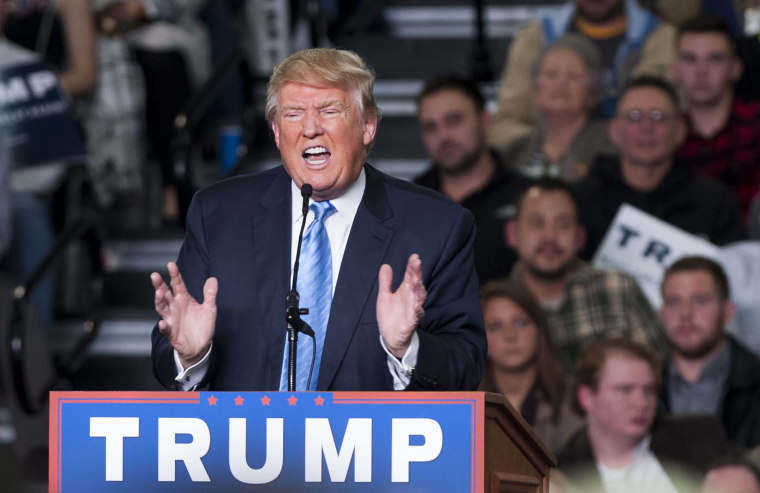Less than a week after the recent deadly attack in Paris, Roanoke Mayor David Bowers (D) tried to make the case against helping Syrian refugees, and cited an example from history. "I'm reminded that President Franklin D. Roosevelt felt compelled to sequester Japanese foreign nationals after the bombing of Pearl Harbor," he said, "and it appears that the threat of harm to America from ISIS now is just as real and serious as that from our enemies then."
The idea that internment of Japanese Americans was a model worth following sparked an outcry; Democratic officials promptly condemned Bowers' remarks; and the mayor himself apologized soon after.
The moral of the story is simple: internment camps were a travesty. Citing them as an example of sensible policymaking is ridiculous.
Three weeks later, Donald Trump called for "a total and complete shutdown of Muslims entering the United States." New Hampshire state Rep. Al Baldasaro (R), the co-chair of Trump's state veterans coalition, defended the presidential candidate's position last night, telling WMUR, "What he's saying is no different than the situation during World War II, when we put the Japanese in camps."
On MSNBC this morning, Trump himself drew the same WWII comparison. Asked if his proposal goes against long-held American values, the Republican frontrunner responded: "No, because FDR did it!" It led to this exchange between Trump and Mark Halperin:
HALPERIN: Did the Japanese internment camps go against American values? TRUMP: We have to be smart, Mark, and we have to be vigilant. And if we're not going to be smart and vigilant, and honestly we also have to be tough. And if we're not going to be those three things, we're not going to have a country left. HALPERIN: Did the internment of the Japanese violate American values? TRUMP: We're not talking about internment; this is a whole different thing.
Pressed on whether he believes internment camps were at odds with American values, Trump refused to say, telling Halperin, "Mark, what about Franklin Roosevelt's presidential proclamations 2525, 2526, and 2527? Take a look at it, Mark."
Just so we're clear, asked about his anti-Muslim plan, Trump initally pointed to FDR and internment. Pressed further, he insisted, "We're not talking about internment." And when pressed further still, Trump pointed for FDR's executive actions on -- you guessed it -- internment.
In other words, when the Republican presidential hopeful says his anti-Muslim policy is "a whole different thing" from internment, he appears to mean the opposite.
